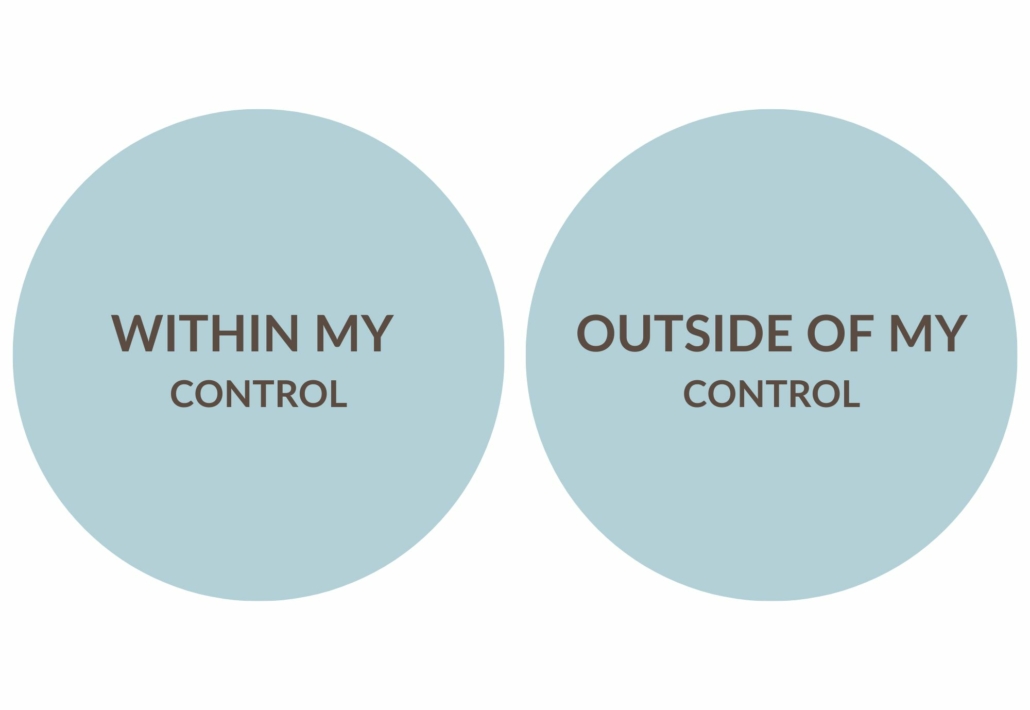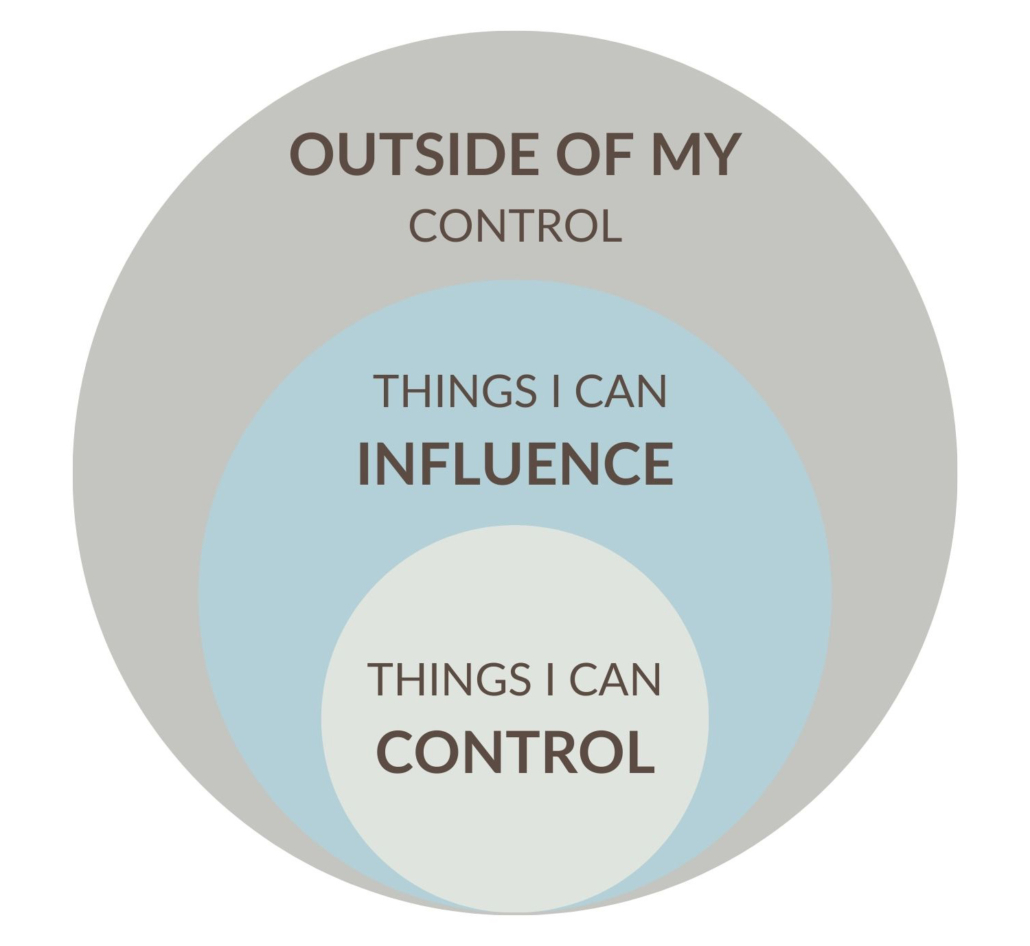CONTROL
One of the key concepts we talk about in coaching is acknowledging that you are responsible for moving yourself forward and that only by accepting and taking control of your life can you do this.
Stoic philosophy tells us that there are two spheres of control: things within your control and those outside it.
The former includes your actions, reactions, thoughts, opinions, attitude, motivation, and emotions, while the latter encompasses external elements like other people’s actions, feelings, and opinions.

Stoics believed it was a waste of time worrying about things you couldn’t control. Instead, you should focus on what you can control. This sounds simple, but many of us spend time worrying about things beyond our control.
By having an understanding of this and acknowledging what can and cannot be controlled, you can reduce feelings of overwhelm and stress. You can learn to accept what you can’t control and to focus instead on what you are able to change.
A modern twist introduces a third sphere—the sphere of influence—positioned between the things you can control and those outside your control. The sphere of influence is particularly relevant in the context of relationships.

From what you have learned above, you know you can control your own behaviour, thoughts, feelings, and attitude but cannot dictate these aspects for your partner.
This additional sphere helps identify where you may be able to influence your partner’s behaviours, thoughts, and feelings through clear communication of your own intentions, needs, and values and also how your partner’s behaviour makes you feel.
While influencing others is sometimes possible, the outcome remains beyond your control. If you are unsuccessful at influencing your partner’s behaviours, acknowledging this fact will allow you to revert to what you can control— your actions, your thoughts, and your choices. Understanding that your choices are within your control and making these choices consciously, rather than feeling stuck, is critical here. Making a conscious choice to either accept a certain situation or not, and it doesn’t matter which you choose as long as you do, allows you to take back your control.
The key takeaways are understanding the boundaries of control and making conscious choices within those boundaries. Whatever choice you make, the emphasis is on informed, conscious decision-making.
Use the worksheet to help you identify the things within your control.
Reflection
- What insights did I gain from this topic or exercise?
- What worries can I release?





